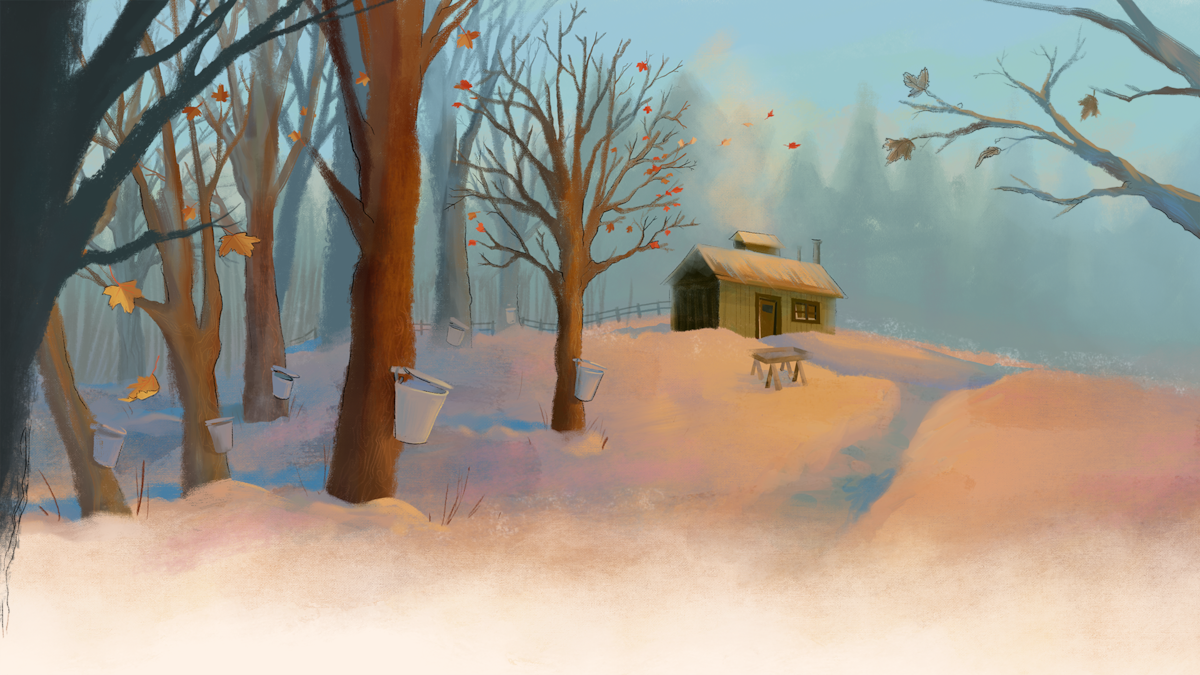Give Maple a boost
Assisted migration, a climate change adaptation strategy, is often cited for helping maples colonize northern forests.
But the truth is more subtle. Beyond soil quality, the current climate should still favor maple by the end of the century.
So today’s efforts will not yield the expected results.
“The climate will eventually soften, Sylvain Delagrange explains. This will encourage growth sooner. But, at the moment, we are planting trees in difficult conditions for them. And in the north, it will take even longer before the trees are ready for production. »
An opinion shared by Sergio Rossi.
The expert recommends increasing maple production now in the northern border of the country, where the climate is already favorable for maple and will remain so even in the most pessimistic shift of its climate. “The idea is not to move further north, but to look for areas where we can think of a different production, adapted to the new conditions. »
North of the St. Lawrence, such as Saguenay-Lac-Saint-Jean, Abitibi-Témiscamingue and Outaouais, there is a lot of untapped potential for tapping.
Before entering the boreal forest, this area has all the advantages. This will be an opportunity to develop new northern sugar bushes.
Prevention is better than cure
Except for one hour at midnight for experts.
Most of the regions that have developed maple cultivation in the last 10 years, and have experienced huge increases in the number of pipes, will find themselves in uncertain climate conditions with global warming.
“The flow potential is at risk, especially in southern Quebec,” worries Sylvain Delagrange. And despite all the alternative solutions envisioned, there is very little to protect maple syrup production from climate fluctuations.
“This type of production does not allow for adaptation”, laments Sergio Rossi in turn. It is impossible to simulate the freeze-thaw cycle required for juice harvesting.
“Everyone agrees that the first thing to do is to reduce greenhouse gases and reduce the effects of climate change, emphasizes Sylvain Delagrange, so that we keep as much as possible of what is naturally kept, or at least we do not. Lose it too quickly. »
This industry generates hundreds of millions of dollars in annual revenue in Canada.
With global warming, maple cultivation is even more valuable, according to a professor specializing in plant ecophysiology, and should take priority over logging.
“The forest filters the air, fixes carbon over the long term and acts as a natural habitat,” he recalls.
“If the same hectare of forest is used for syrup production, there is little impact on all the other natural services it provides us. And, in addition, we have this economic added value. »
– Sylvain Delagrange, University of Quebec at Outais
According to the expert, tapping our maple trees is not only economically viable but above all environmentally responsible.
Share the project
Daniel Blanchett-Pelletier data reporter, Isabel Bouchard data analyst, Melanie Julian desk manager, Francis Lamontagne appoint, Charlie Dibbins A painter of wild pictures, Andre Guimaraes And Mathieu Saint-Laurent Developers, Daniel Zazar Linguistic editor and Martin Roy Coordinator

“Music geek. Coffee lover. Devoted food scholar. Web buff. Passionate internet guru.”



